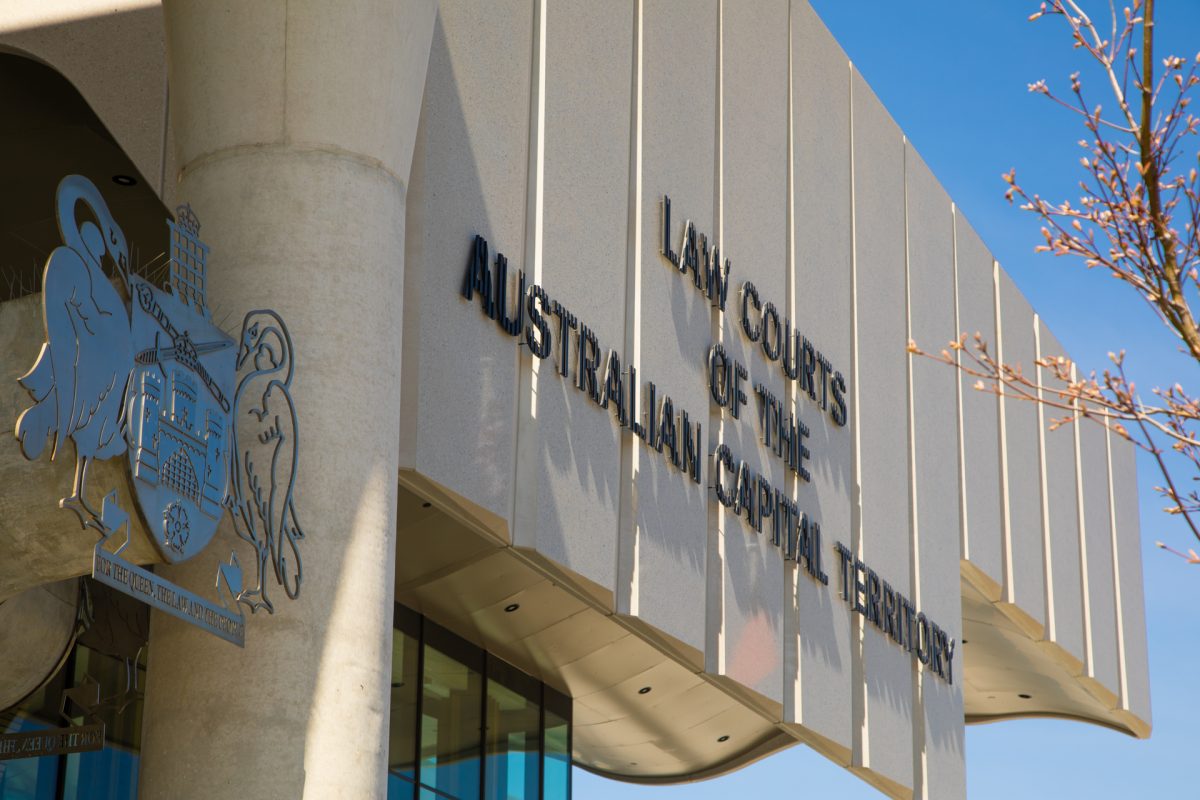
The ACT Bar Association has rejected calls for a “blanket prohibition” of good character references for child sex offenders, a stance advocates for change have called “tone-deaf”. Photo: Michelle Kroll.
Legislative reform could be on the horizon regarding good character references for convicted child sex offenders, but the ACT Bar Association has warned the proposed change is a bad idea.
Child sex abuse victim-survivor-led campaign Your Reference Ain’t Relevant has been pushing for laws to change in the Territory so that good character references for all convicted paedophiles can’t be used during sentencing hearings.
Paedophiles who used their positions to gain access to children, such as teachers or religious leaders, already cannot use their previous good standing in the community as a reason for a lesser sentence.
But other convicted abusers, including parents and carers, can use these references.
Advocates want this changed, but the ACT Bar Association has argued that evidence of an offender’s “prior pro-social conduct” is relevant during sentencing.
In a statement, the association stated that while it understood it could be confronting or distressing for victim-survivors to hear their abuser being described as of ‘good character’, this wasn’t defined in local legislation.
“It has evolved as a form of legal shorthand, used in the ACT and elsewhere, to refer to evidence that an offender, aside from the conduct for which they are to be sentenced, has previously engaged in some worthwhile, pro-social activities and/or is or was well-regarded by members of their community,” it stated.
“A statement that an offender is or was of ‘good character’ is generally not intended by those who deploy it to deny or discount the gravity of the offending for which the person is to be sentenced.”
The ACT Bar Association understood it could be argued someone who could offend in such a manner can’t be of ‘good character’ and that there could be a “problem of language” that could be addressed through a legislative amendment.
But it disagreed on an overall ban on presenting such evidence to the court.
“To the extent, however, that it is proposed that courts be precluded altogether from receiving evidence that a person being sentenced for child sex offences has previously engaged in worthwhile, pro-social activities, and/or was well-regarded in their community … is not supported by the ACT Bar Association,” it stated.
“A blanket prohibition on the receipt of evidence of ‘character’ of an offender is antithetical to principles of proportionality and balance in the sentencing process.”
The ACT courts are obliged to have regard to an offender’s character, age, physical or mental condition and prior history during sentencing considerations.
The association stated that each offender was unique, as were their crimes, so they should be treated as such in the courts.
“The Bar Association also sees insufficient justification for creating a special category of sentencing by prohibiting the use of evidence of good character only in relation to sentencing of child sex offenders.”
The association’s stance has angered child sex abuse victim-survivors.
Your Reference Ain’t Relevant campaign co-founder Harrison James called the Bar Associations’ statement “tone-deaf” and a “direct insult to every survivor who has bravely shared their story”.
“The community demands accountability and protection for survivors, yet the ACT Bar Association is clinging to a position that aligns more with the interests of abusers than with the pursuit of justice,” he said.
“It’s time for a reality check within the legal community.”
The campaign’s e-petition has over 560 signatures and is expected to be tabled at the ACT Legislative Assembly next week.
It’s received endorsements from The Canberra Rape Crisis Centre, The Grace Tame Foundation, The Australian Childhood Foundation, The Domestic Violence Crisis Service, The Australian Federal Police Association and ACT Victims of Crime Commissioner Heidi Yates.
Attorney-General Shane Rattenbury also referenced it during his speech to signal the start of the legal year.
“I commend [their] tenacious and focused advocacy … they have started a conversation in the Territory on how evidence of good character should be used in sentencing proceedings relating to child sexual abuse offences,” he said.
Mr James called the upcoming tabling of his e-petition a “significant step” in the campaign’s efforts to reform the legal system.
“Perceived good character can be a deceptive element of the grooming process, yet it often results in leniency for convicted paedophiles,” he said.
“Our goal is to redirect this emphasis towards the gravity of the offence itself, rather than the perpetrator’s reputation.
“We aspire for [our petition] to be a catalyst. A compelling moment for the government to grasp the urgency for change and take decisive, unapologetic action for the protection of our children.”
The Attorney-General has asked the Justice and Community Safety Directorate to consider whether legislative reform is needed.





















